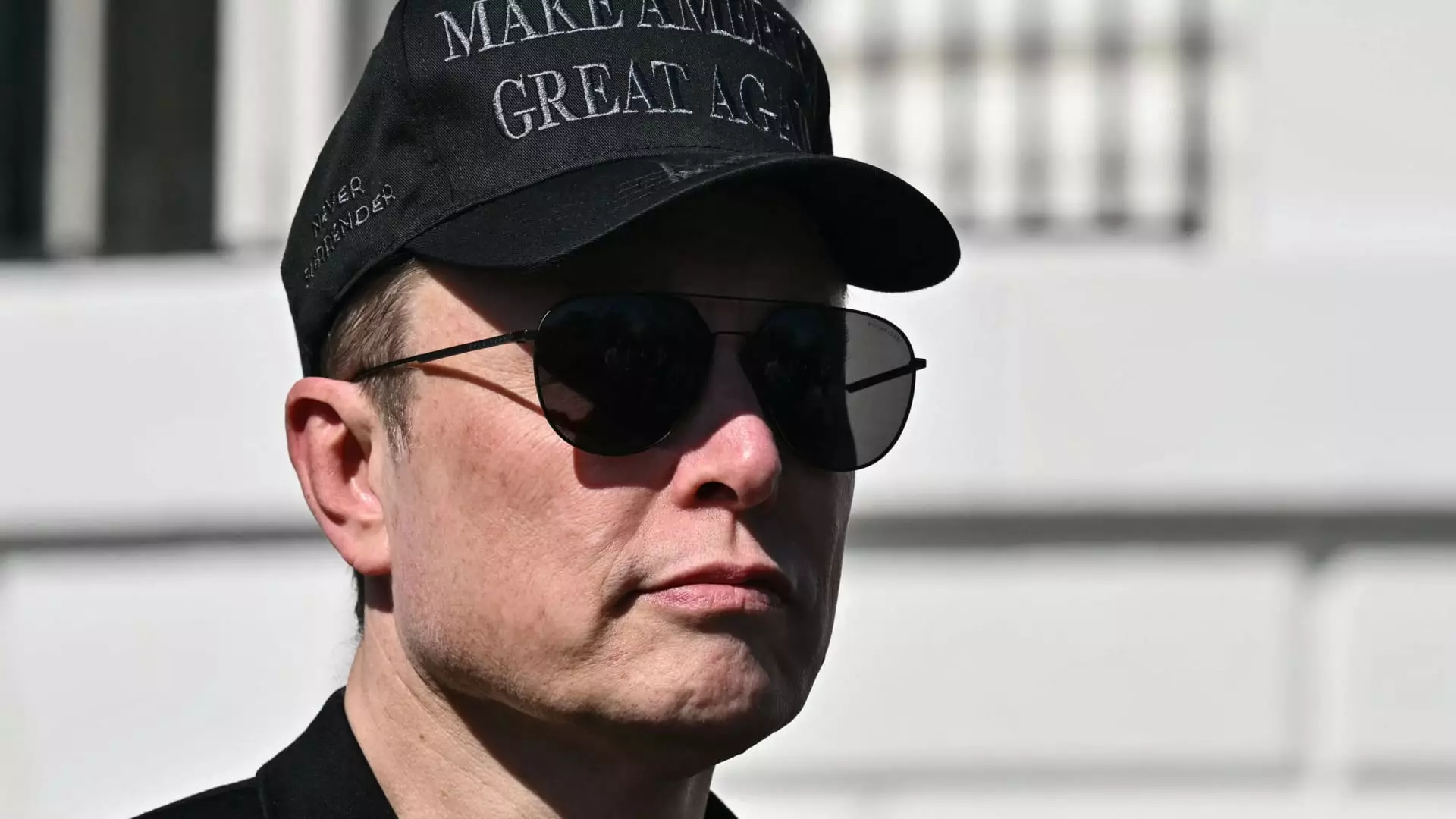In a world where innovation often collides with regulation, Elon Musk finds himself again ensnared in legal woes as he faces a summons from the Securities and Exchange Commission (SEC). This latest legal entanglement stems from allegations that Musk failed to adequately disclose his stock purchases in Twitter—now rebranded as X—prior to his ambitious $44 billion bid to acquire the platform in 2022. The summons serves as a reminder of the delicate balance between entrepreneurial spirit and regulatory compliance, and how easily one can slip into a contentious situation in the fast-paced environment of the tech world.
The initiation of the SEC’s lawsuit points to serious implications regarding Musk’s conduct during his stock acquisition spree. He allegedly accumulated a stake greater than 5% without notifying shareholders within the legally mandated ten-day window. This not only raises questions about transparency but also suggests that Musk may have engaged in tactics to manipulate market perceptions, potentially allowing him to undervalue his acquisition by at least $150 million. Such claims, if proven, could have wide-reaching repercussions not just for Musk, but for other high-profile investors who might feel emboldened to navigate around the rules.
Challenges of Serve and Process
Eyewitness accounts of the summons delivery depict a rather dramatic scene at SpaceX headquarters in Brownsville, Texas, where Musk is known to be an influential figure. A process server encountered resistance from security guards who refused to accept the documents. While such theatrics may add intrigue to the story, they also illustrate the hurdles that regulatory bodies must overcome to hold powerful figures accountable. Musk’s legal team is required to respond to the allegations by April 4, keeping the clock ticking on an already tense situation.
This event raises the question of how much latitude is afforded to titans of industry compared to ordinary citizens when it comes to legal accountability. Far from being an isolated incident, Musk’s experience shines a light on broader systemic issues regarding the enforcement of financial regulations, particularly against influential personalities who command substantial public and political interest.
Musk’s Political Connections
Adding another layer to this unfolding saga is Musk’s association with political figures, notably Donald Trump. Not only has he leveraged Twitter to advocate for Trump and other Republican candidates, but he has also invested a staggering $290 million into Trump’s political endeavors. This relationship blurs the lines between business and political agendas, creating a complex web of interests that complicates public perception and regulatory oversight. Musk’s involvement in political advocacy raises a valid concern: does this powerful connection afford him a degree of immunity in his dealings with regulatory bodies like the SEC?
The Trump administration’s implications on the SEC as a regulatory force further complicate matters. With deep budget cuts and a reversal of key investigative policies, the SEC faces obstacles that could hinder its capacity to execute its mandate effectively. This not only sets a dangerous precedent for enforcement but also may embolden controlled figures to tread perilous waters without facing the consequences that their actions normally warrant.
Lessons from Previous Encounters
Musk is not new to the regulatory landscape. In fact, he previously settled civil securities fraud charges with the SEC at Tesla, resulting in a $20 million fine and a temporary relinquishment of his chairman role. This prior engagement illustrates a pattern of behavior that regulators and investors alike must scrutinize. With the echo of past settlements casting a long shadow over Musk’s business maneuvers, the question arises: have any lessons truly been learned?
The current legal proceedings will undoubtedly provide further insights into Musk’s approach to corporate governance, compliance, and ethical responsibility. As industry leaders set the tone for future business conduct, Musk’s case might serve as a cautionary tale about the perils of regulatory indifference. Stakeholders—ranging from investors to policymakers—must engage in discourse around the balance of innovation and accountability, lest they allow the allure of progress to eclipse the need for responsible leadership.
Musk’s future interactions with the SEC and his broader influence in the tech and political spheres will continue to be under watchful eyes, as his actions resonate far beyond the courtroom.

